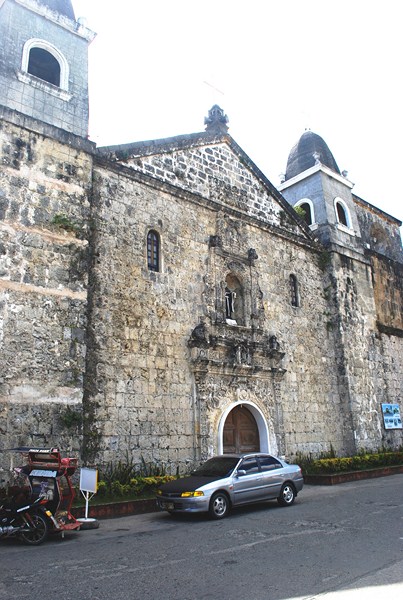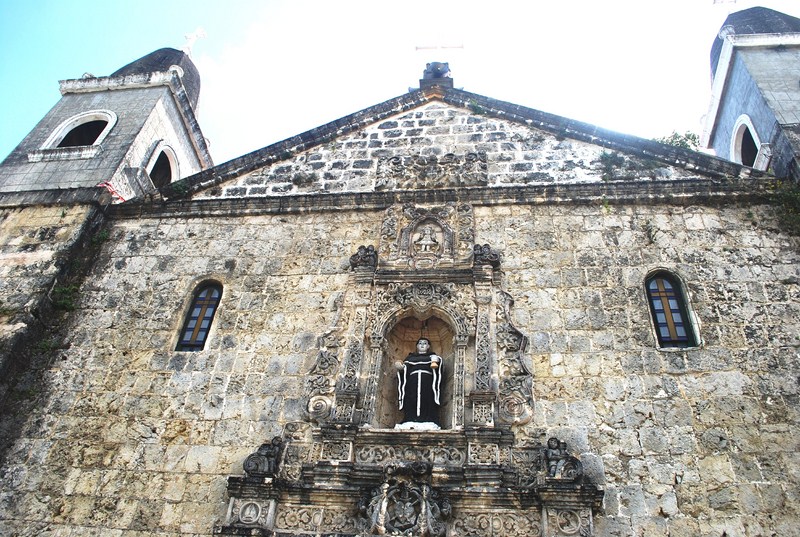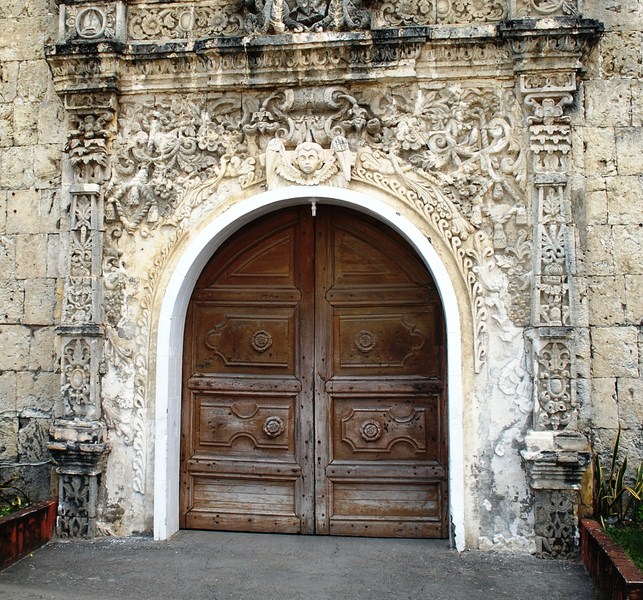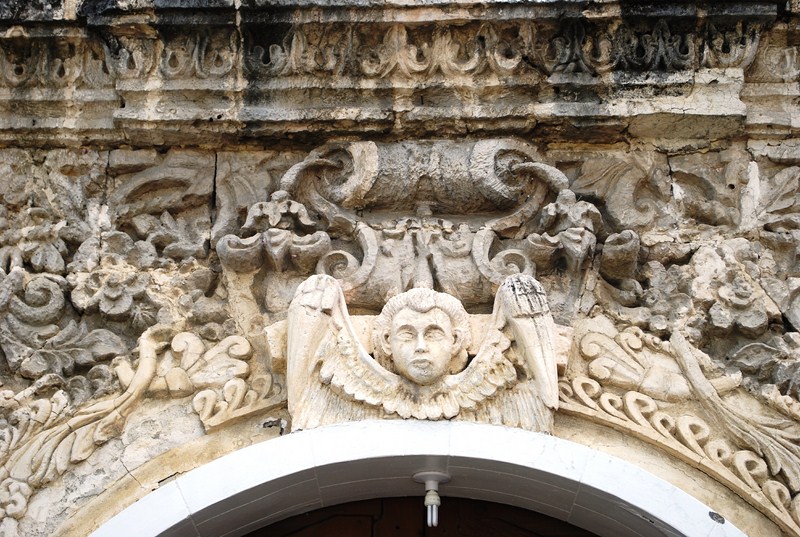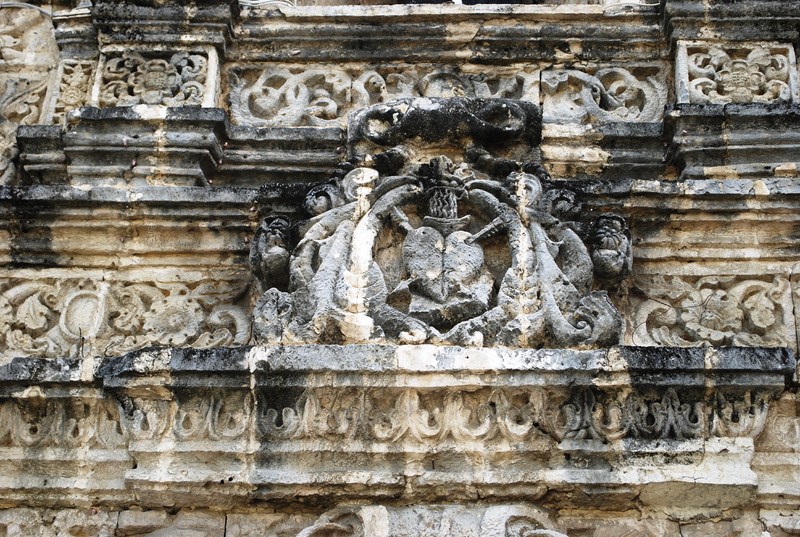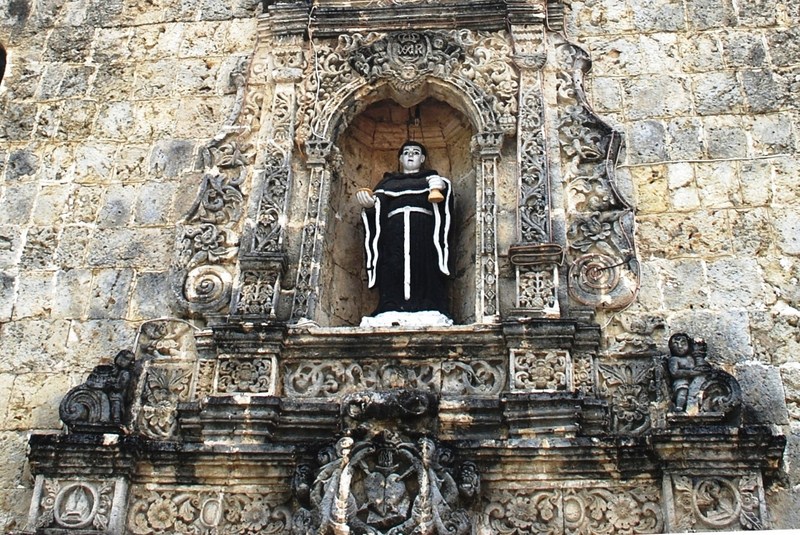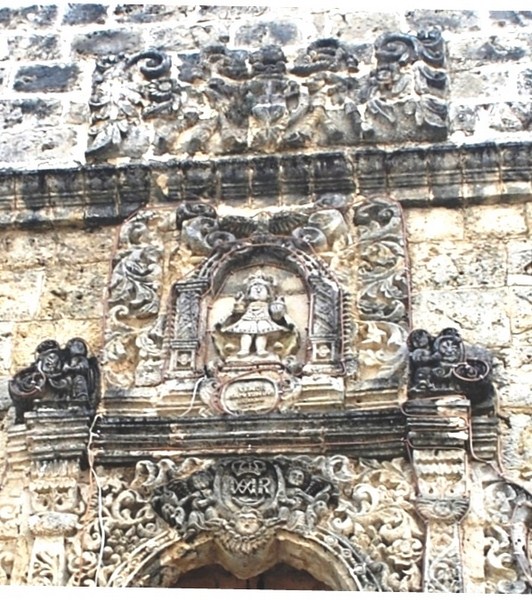Just 5 kms. from Guimbal, I made my last stopover at Tigbauan where I visited its old reddish coral and limestone church which was built, together with the convent, by Fr. Fernando Martin in 1867. The convent was destroyed during the January 25, 1948 Lady Caycay earthquake.
Its facade has fine Spanish Churrigueresque stone carvings; a sustained crescendo rising from the elaborate Baroque main entrance arch (with a cherub with bent wings marking its keystone) upwards through its 3-storey height into cornice, keystones, pilaster and spandrels, prolix with whorls and scrolls following foliate and floral designs. Its pilasters, reminiscent of Mexican estipites, are decorated with floral motifs.
The image of the Augustinian St. Nicolas of Tolentino, ensconced in an elaborately carved rectangular niche in the first tier, is flanked by pilasters embellished with flowers and upon it is a depiction of San Juan.
The little image of the Holy Jesus (Sto. Nino) is on the following tier. The finely carved Augustinian motif of the pierced heart and bishop’s hat, capping the exquisite masterwork of unknown artists, is surrounded by a retablo-like floral frieze which fills the central section.
A pair of little angles is located at the sides and floral designs rest on the base of the triangular pediment. Behind its rectory was the first Jesuit school for boys in the Philippines established in 1592 by Fr. Pedro Chirino, S.J..
How To Get There: Tigbauan is located 22.48 kms. from Iloilo City, 4.8 kms. from Guimbal and 11.2 kms. from Oton.

